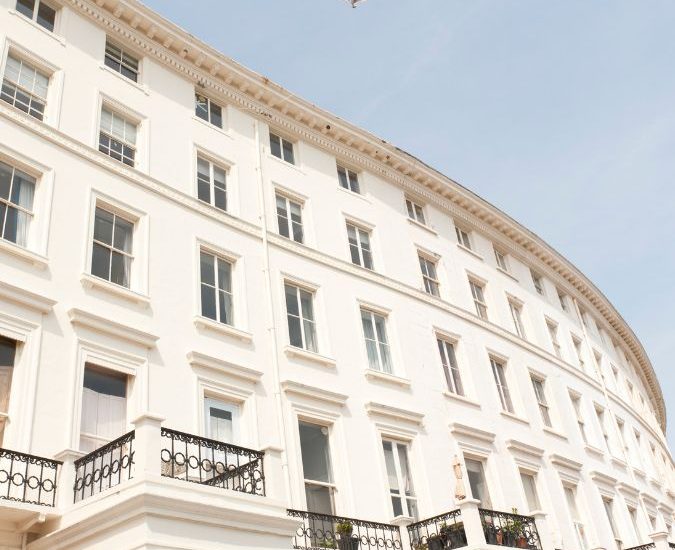In this year’s Spring Budget, the government announced the repeal of the Furnished Holiday Lettings (FHL) regime, which will take effect on April 6th, 2025. While many are aware of the impending change, the full implications on businesses operating under the FHL regime might not be as well understood. This transition will significantly alter how…Read More
SPVs or Special Purpose Vehicles are companies that are set up for the sole purpose of purchasing, holding or letting out properties and nothing else. So, if you are a landlord who is looking to set up a limited company for tax purposes, it might be a preferable option to setting up a trading company.…Read More
Starting a small business is an exciting venture, but it often comes with financial challenges, especially if you are on a tight budget. Many small and micro business owners under-estimate the amount of money they need to invest in the business at start up and consequently the business never gets going to its full potential.…Read More
Capital Gains Tax (CGT) can often be a significant consideration for property owners upon disposal of their assets. However, certain reliefs, such as Principal Private Residence (PPR) relief, can significantly reduce or eliminate the CGT liability, particularly when the property has been used as a primary residence throughout ownership. Principal Private Residence Relief Explained PPR…Read More
As a landlord, managing your finances effectively is crucial to the success and growth of your property investments. One key aspect of this is filing your self-assessment tax returns on time. The official deadline for the year ending 5th April 2024 is the 31st of January 2025. However, there are many compelling reasons to consider…Read More
Understanding VAT Exemptions and Options When it comes to property rentals, VAT (Value Added Tax) can be a bit of a complex topic. Typically, properties rented out are exempt from VAT. This exemption means that landlords cannot charge VAT to their tenants. Consequently, landlords also cannot reclaim any VAT incurred on their expenses related to…Read More
If you have acquired a property from an estate and you are classed as a Property Trader you may be eligible to be exempt from SDLT, subject to a few relevant conditions. To be classed as a Property Trader you can be a company or a limited liability partnership and be in the business of…Read More
If you are currently letting out a FHL under the current scheme for this year you may be aware that in the 2024 Budget, the chancellor announced that from April 2025, the FHL tax regime would be abolished. This may raise concerns for those of you who are worried about the impact of reduced tax…Read More
The official deadline for filing your self-assessment tax returns for the year ending 5th April 2024 is the 31st of January 2025. However, there are many reasons to consider filing your taxes months before this date. First, understanding your tax liability early in the year can give you a clear picture of your profit for…Read More
Dext, Apron, and QuickBooks’ Receipt Snap each have unique strengths and weaknesses, making them suitable for different types of businesses. Dext Dext integrates seamlessly with Xero and QuickBooks, offering a comprehensive suite of products tailored for various clients and businesses. QuickBooks’ Receipt Snap Receipt Snap is a straightforward tool primarily suited for smaller companies or…Read More
Buying a property can sometimes be tricky, but there are ways to make your offer shine, whether it’s straightforward or involves negotiations or sealed bids. Here are some tips to help you secure your dream home: Getting Ready to Make an Offer Before making an offer, ensure your paperwork is in order. You’ll need to…Read More
Dreaming of owning a Buy to Let property? Getting your first BTL mortgage should be your first step into the world of Buy to Let property owners. Mortgages can be highly complicated and it is likely that a mortgage advisor would be required. Chances are you will need to own a main residence mortgage before…Read More
Here are five reasons why investing in buy-to-let property in 2024 could be a smart move. Despite recent price drops, experts project that property prices will rise in the upcoming years. This presents an opportunity for investors to capitalise on potential capital appreciation, especially if they enter the market during a period of discounted prices.…Read More
As a newly VAT registered business you may find yourself asking, “When is my VAT due?” Understanding your VAT due date is essential to ensure compliance with HMRC regulations and avoid penalties. This post can provide some clarity on VAT due dates and offer tips to help you manage your VAT obligations effectively. VAT Due…Read More
After reading this post you will gain an understanding on the VAT deregistration process, including what makes you eligible and what you need to consider. VAT Deregistration Deregistration means that a business is no longer VAT registered and is not required to charge VAT on its goods and services, this also means that VAT cannot…Read More







